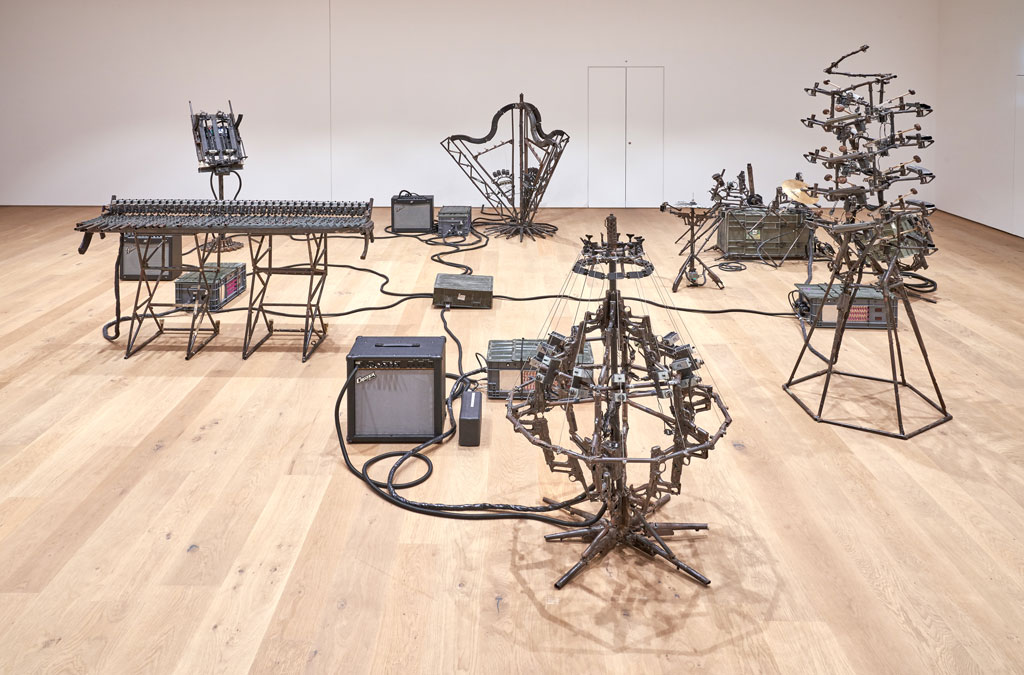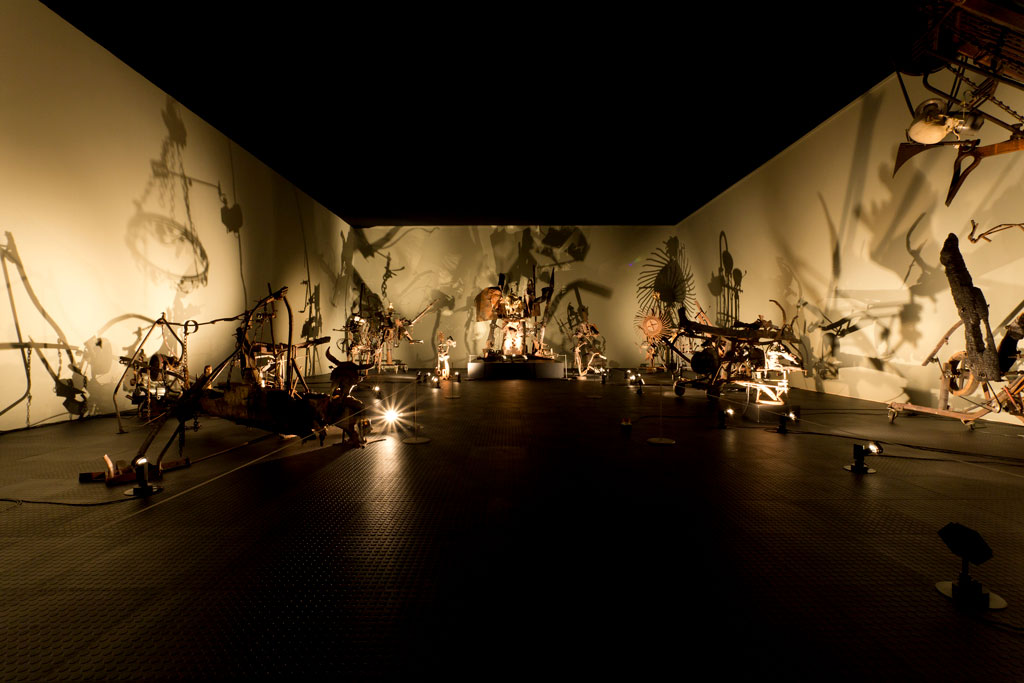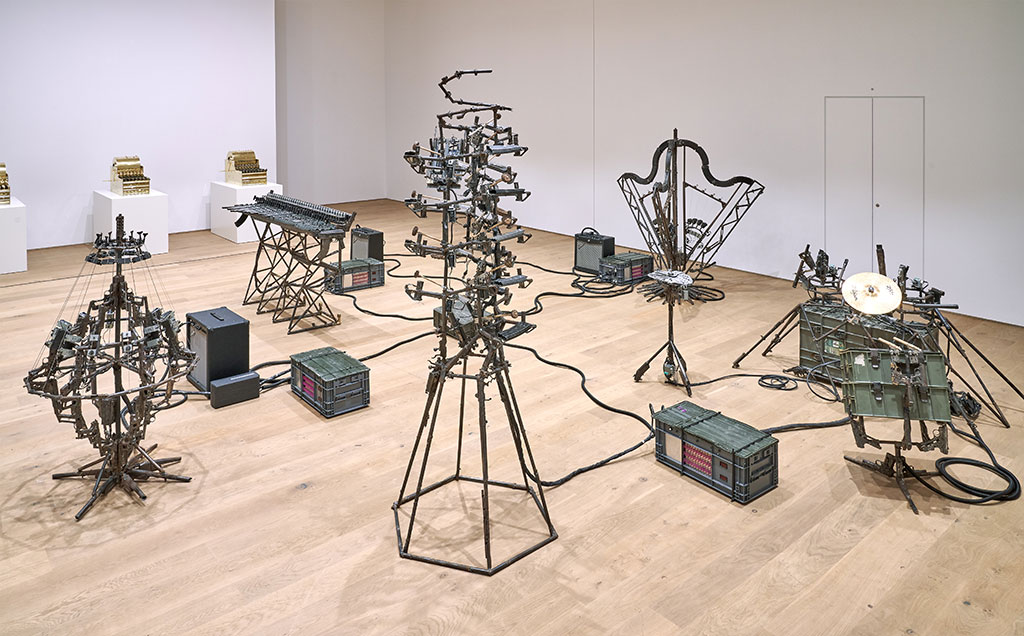ART CITIES:Basel-Pedro Reyes
 Pedro Reyes pushes the boundaries of how an artist appropriates material for artistic production, he has won international attention for large-scale projects that address current social and political issues. Through a varied practice utilizing sculpture, performance, video, and activism, Reyes explores the power of individual and collective organization to incite change through communication, creativity, happiness, and humor.
Pedro Reyes pushes the boundaries of how an artist appropriates material for artistic production, he has won international attention for large-scale projects that address current social and political issues. Through a varied practice utilizing sculpture, performance, video, and activism, Reyes explores the power of individual and collective organization to incite change through communication, creativity, happiness, and humor.
By Dimitris Lempesis
Photo: Museum Tίnguely Archive
Pedro Reyes in his solo exhibition “Return to Sender”, presents his new series “Disarm Music Βοχ” (2020). Reyes has repurposed gun parts to make music boxes that perform fragments of tunes from the countries where the guns were produced. Reyes is concerned with «upcycling»-transforming an instrument of death into a musical instrument that stands for dialog and exchange. The new production is presented for the first time and alongside with his work “Disarm (Mechanized) ΙΙ” (2014). The invitation to Reyes to develop a new work for Museum Tinguely follows on from earlier work from 2012. For the work group “Disarm”, he was able to use 6,700 weapons confiscated in the Mexican drug war and transform these into musical instruments. In a first version of “Disarm”, he created instruments that could be played live by musicians who were friends of his. This was followed by the conception of an multi-part weaponinstrument ensemble “Disarm (Mechanized), Ι” (2012-13) which plays percussive music pieces in a mechanized and automated way. The second of the two existing versions of “Disarm (Mechanized) ΙI” (2014) will enter into dialog with Tinguely’s Menge/e-Dance of Death (1986) as part of the exhibition. Ιη the dialog between the two works presented in adjacent rooms, Tinguely’s criticism of totalitarianism and Reyes’ critical examination of the societydestroying exchange processes of drugs and weapons meet in a gruesome dance of death. Pedro Reyes’ projects take place in the research field between a socially shaped understanding of architecture, the sensual and symbolic dimension of sculpture, and a decidedly political stance that adopts a radically humanist and Marxist position. At documenta 13 in 2012, he presented the work “Sanatorium”, a first-aid pavilion for lifestyle diseases, such as stress or anxiety, which offered a variety of therapies based on shamanism, cognition research, and relationship counselling in a playful yet socially binding and unifying way. Originally trained as an architect, Reyes ran the project space “Torre de los Vientos” in Mexico City from 1996 to 2002. He attracted international attention in 2008 with his project “Palas por Pistolas” for which he worked with the local authorities of Culiacán, Mexico, to exchange weapons from the local population for coupons to purchase domestic appliances and electronics, melt these weapons down, and recast them into 1,527 shovels to plant trees. Since then, these actions have continued both in the local environment and with international cultural institutions. In connection with Reyes’ exhibition at Museum Tinguely, this project is being continued with the planting of a new chestnut tree directly in front of the museum entrance. Pedro Reyes’ projects take place in the research field between a socially shaped understanding of architecture, the sensual and symbolic dimension of sculpture, and a decidedly political stance that adopts a radically humanist and Marxist position. At documenta 13 in 2012, he presented the work “Sanatorium”, a first-aid pavilion for lifestyle diseases, such as stress or anxiety, which offered a variety of therapies based on shamanism, cognition research, and relationship counselling in a playful yet socially binding and unifying way. Both projects “Palas por Pistolas” and “Disarm”, emerged from the specific situation of the Mexican drug war. However, the commercialization and proliferation of weapons is a worldwide problem that Reyes addresses with his new body of work “Disarm Music Box” (2020). With these works, he criticizes the ever-increasing accumulation of weapons throughout the world from a pacifist perspective. In this newly created group of works, weapons are acquired from specific manufacturers—they can be found in almost every country in the world—and then destroyed in order to create resonating bodies from their barrels to be used in newly created music boxes. They play well-known, classical music pieces from the respective manufacturer’s country of origin. A musical box made with Glock pistol parts plays Mozart, Beretta barrels Vivaldi, while Reyes’s weapon of choice for Swiss songwriter Mani Matter is the Carabine. Reyes is concerned with “upcycling” transforming an instrument of death into a musical instrument that stands for dialog and exchange. He undertakes this transformation process with the conviction that the physical act is always accompanied by an idealistic one and appeals to the spiritual dimension of this quasi-alchemical operation towards the good.
Info: Curator: Roland Wetzel, Museum Tinguely, Paul Sacher-Anlage 2, Basel, Duration: 24/6-15/11/20, Days & Hours: Tue-Sun 11:00-18:00, www.tinguely.ch
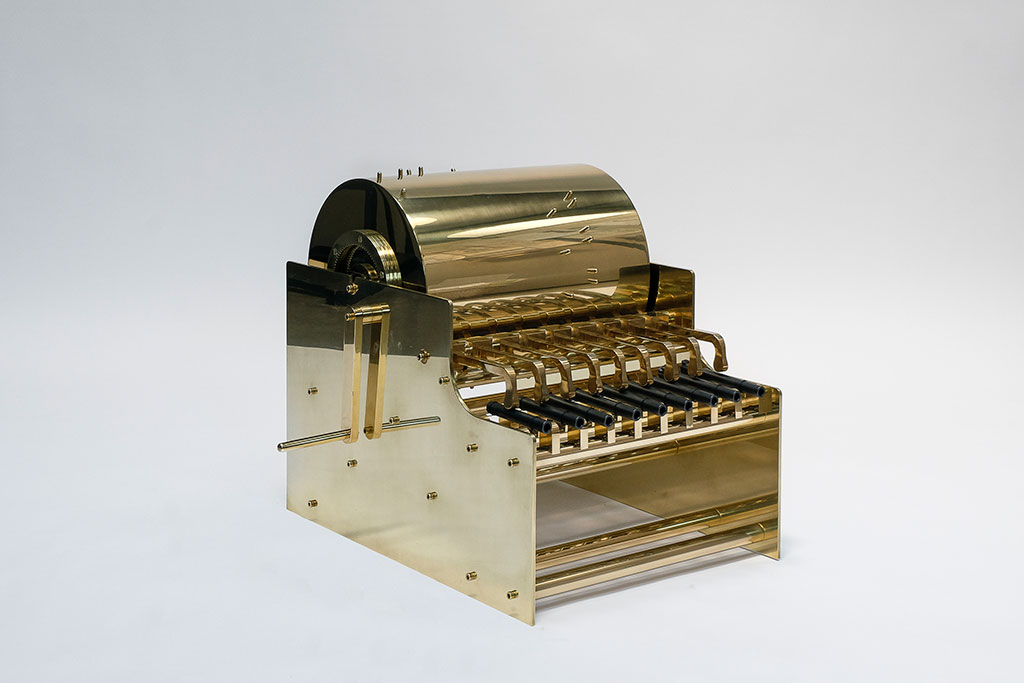
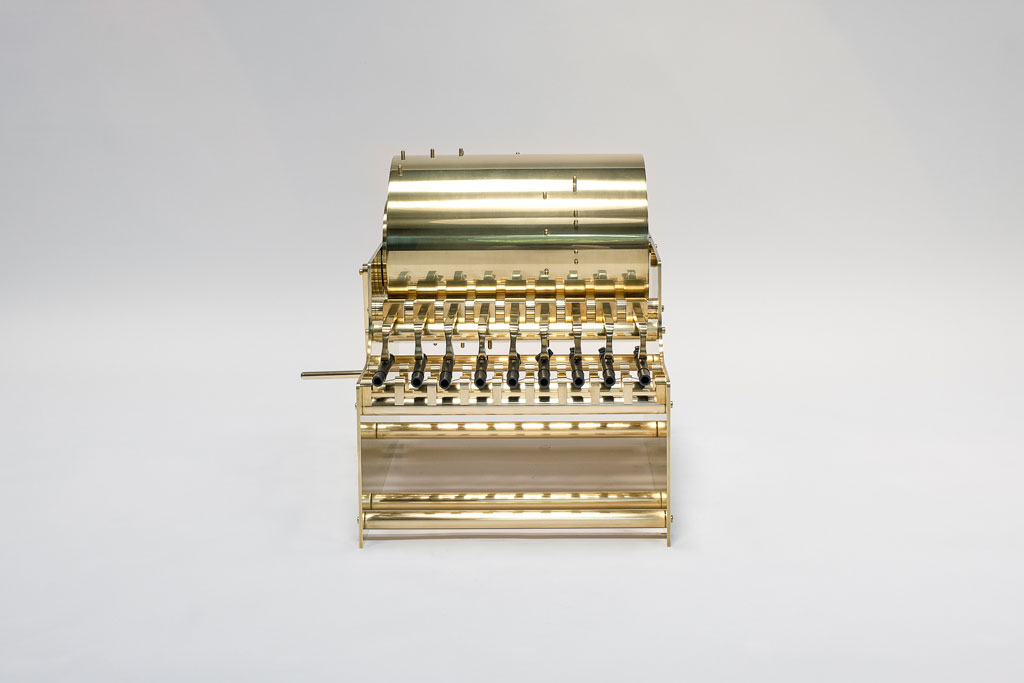
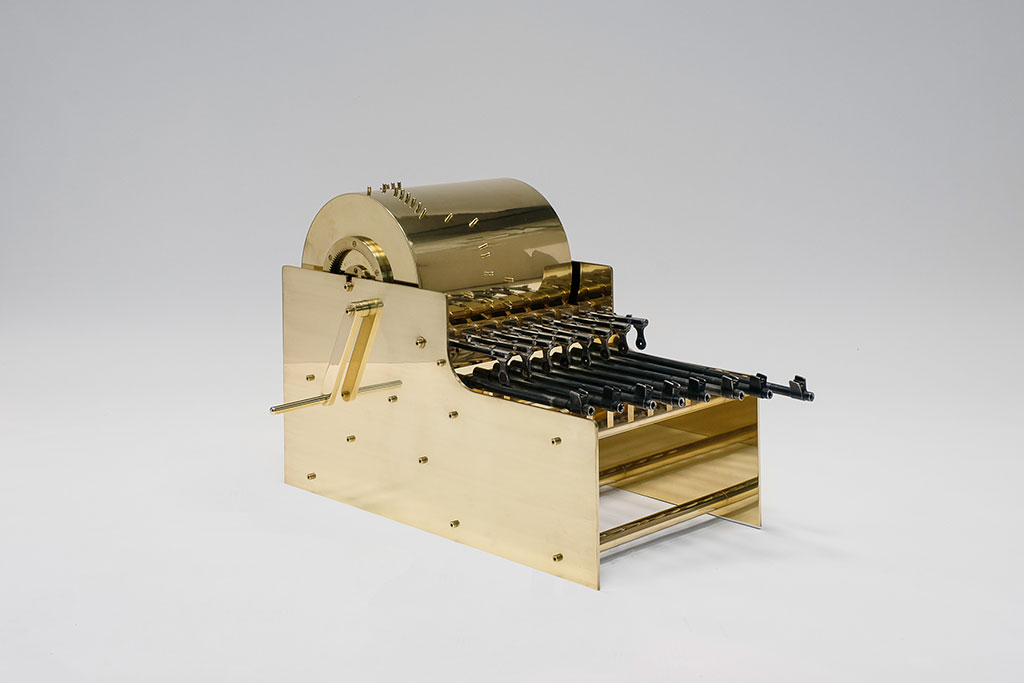
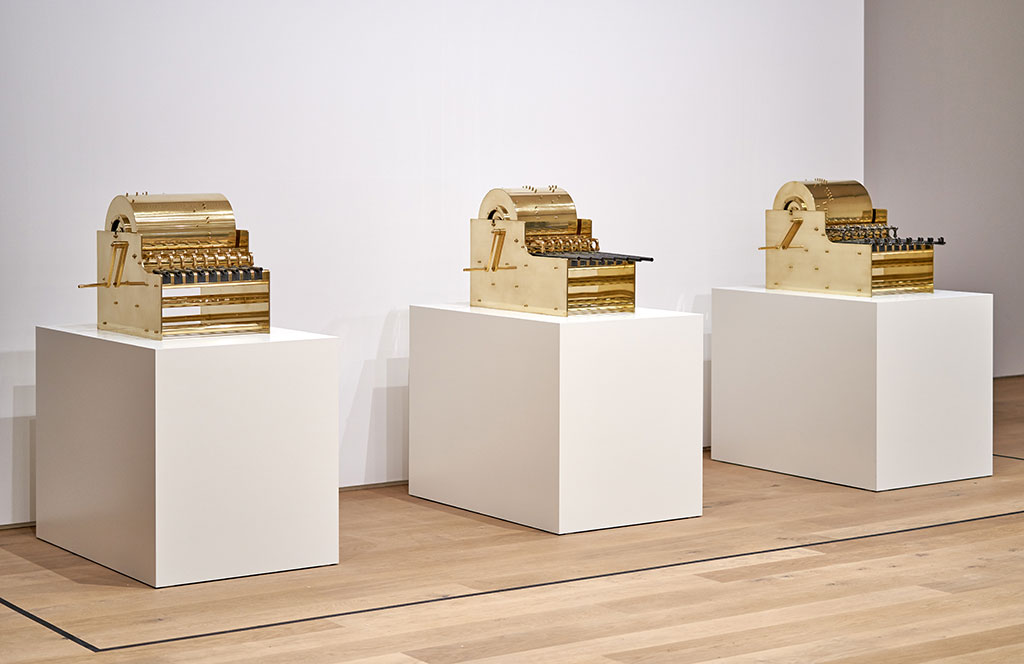
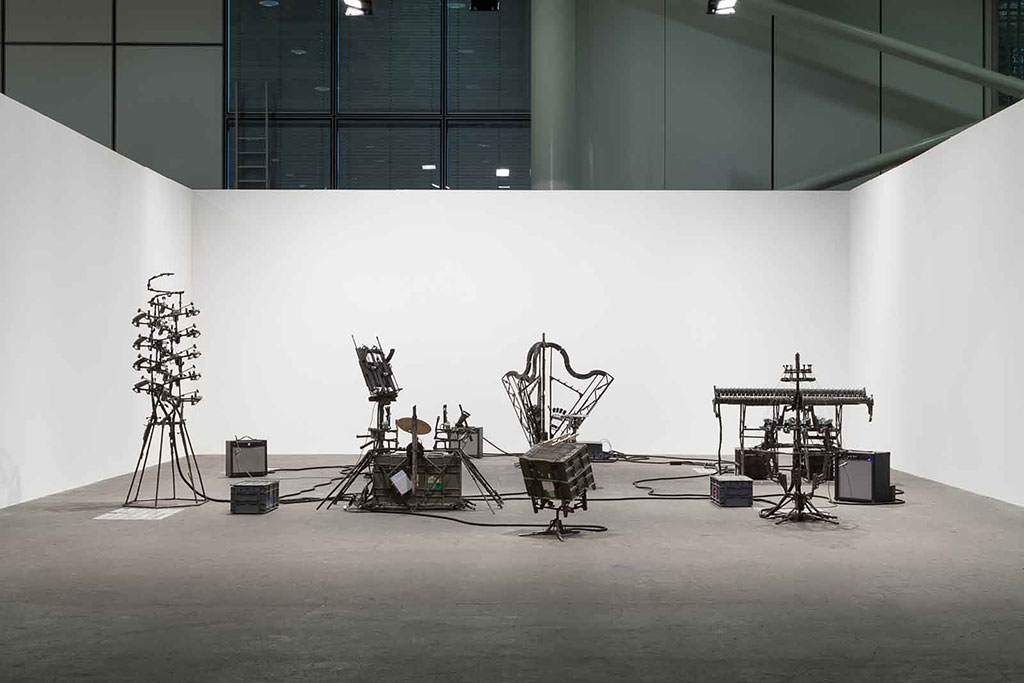
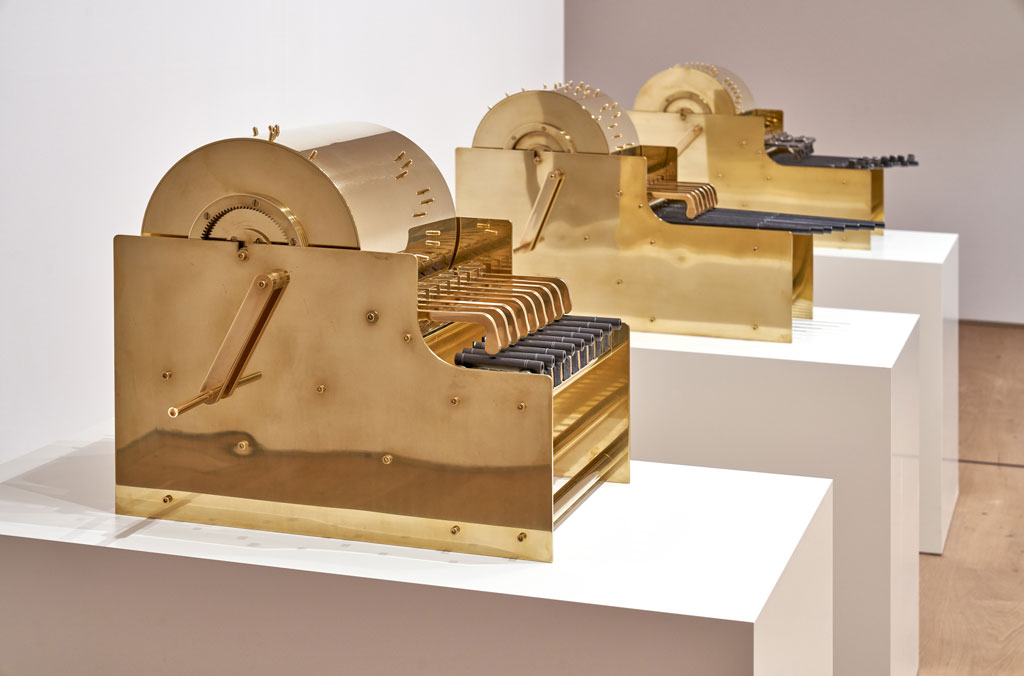
![Pedro Reyes, Palas por pistolas [Guns into Shovels]. 2007, Documenting of the destruction of the donated weapons, 2007, © Courtesy of the artist, Photo: Rafael Ortega](http://www.dreamideamachine.com/web/wp-content/uploads/2020/06/5_PalasPorPistolas.jpg)
